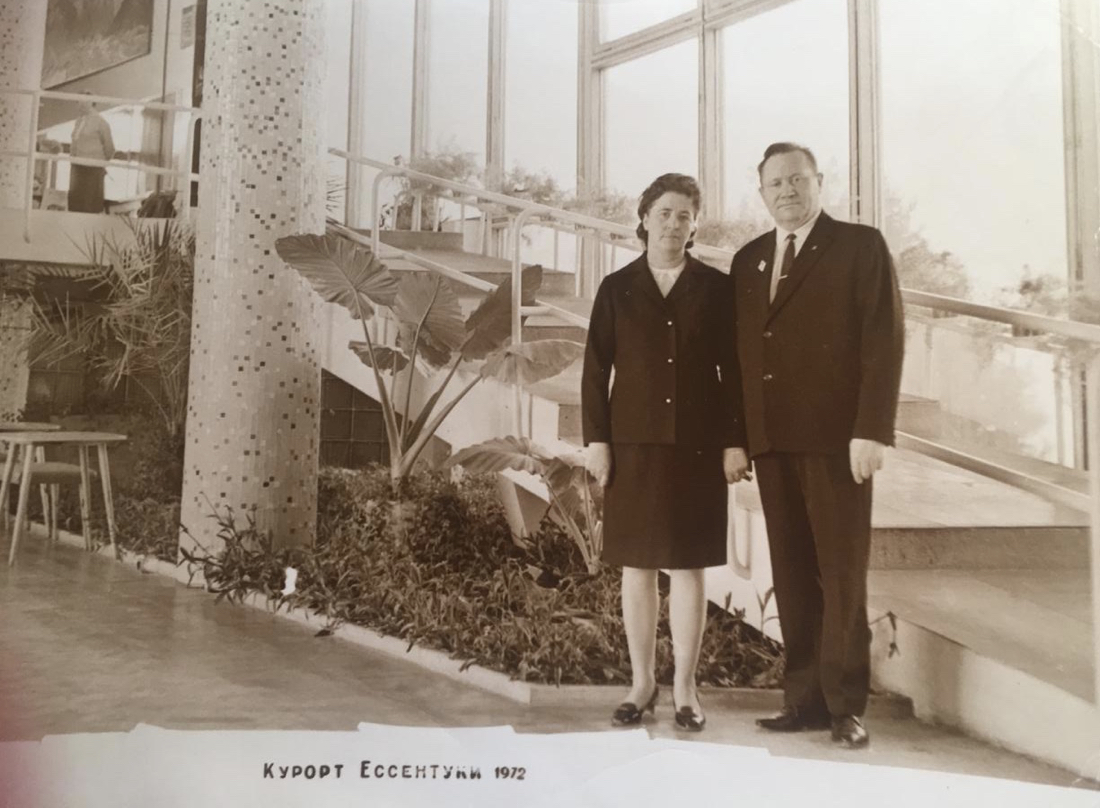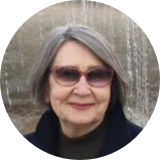We lost my mother when I was 12 years old. She died while giving birth to my youngest sister. Six months later, my sister died, too. It seems my mother couldn’t part with her.
My mother left behind five children: two sons and three daughters. She was incredibly kind. No one could replace her.
When World War II broke out, one of my brothers was killed in combat. At this time the military commissariats had been instructed to select a certain number of children from each kolkhoz [collective farm] to be sent to labor camps. I was about 16 when I was taken to a children’s labor army in Astana together with another girl.
To this day I still don't know why they picked us.
All I had to wear was a dress. I had no winter clothes, and I became very ill. One of my friends suggested we run away from the camp and so we escaped. We walked for miles on end for several days without any food or proper clothing. On the way we saw a potato farm, and we asked if they could feed us if we helped them around the farm. They fed us, we helped them in return, and then we continued on our way.
When I returned to the village, only my sister was at home. It was a punishable offense to run away from a labor army, so I hid there for several weeks. I wouldn’t leave my room during the day, only after dark.
Somebody must have spotted me, because one day the local commander came to my house and interrogated my sister. He told her that if she confessed to hiding me, he would help me in return. I was terrified, my aunt had spent a year in prison. But he promised he would help me find a job to keep me out of prison and swore I would be safe. I’ll never forget what he did for me.
Back then life was simpler, we had fewer things. My mother sewed our school bags by hand. When I look at my children now, I tell them with tears in my eyes how grateful they should be for everything they have.
There was never anything to do after school: no extracurricular activities and no homework. Nowadays children are always doing something: studying, ballet ... In my time, we’d come home and help around the house.
After I finished elementary school, I never went back to school.

The first boy I fell for was a classmate of mine. He’d walk me home every day, but only halfway because my father was very strict and he was afraid of him. We were all just so shy back then!
The man I eventually married was a Crimean German whose family had been displaced by the Soviet authorities.
Before we got married, he told me he would provide for me. “I will feed you, I will clothe you, and our kids will study,” he said. He was an incredibly hardworking and kind-hearted person who lived through very difficult times, he lost his father and brothers at an early age. My daughter is a carbon copy of him.
Everybody, from the authorities to the locals, respected him despite his German background. He rose through the ranks to become the head of a local kolkhoz and, under his leadership, they built new roads and homes. If you go back to the village now, you’ll see it’s in a worse state than it was after he finished with it over sixty years ago!

They never taught us a single thing about pregnancy in school. People were ashamed.
I can say that my first daughter was an accident. Soon enough another child popped out, then another, then another. My husband told me that we would have eight children, but I refused. While I was at work, my mother-in-law, a very strict German woman, would help out with the children.
My husband worked from sunrise to sunset, the kids hardly ever saw him.
Those poor women who lost their husbands during the war and had to provide for their families on their own. I was lucky that this wasn’t me. We lived a wonderful life.
Our children were always very disciplined, and they all graduated from university, except for one. I remember when my daughter Lyudmila told me she wanted to be a doctor. I supported her decision, and never told her to stay at home. When you see a child with talent and abilities, why limit them?
I never worked again. Now I live in Germany, and the pension they give me is more than enough.
My husband suffered from diabetes, and eventually died from it. It was incredibly difficult. We had a wonderful family and never argued.
A real woman needs to respect her husband. If she respects him, she’ll never say anything to upset him. If she says something insulting, it’ll destroy the whole family. A woman should keep her emotions under control, and couples should love and respect each other.




